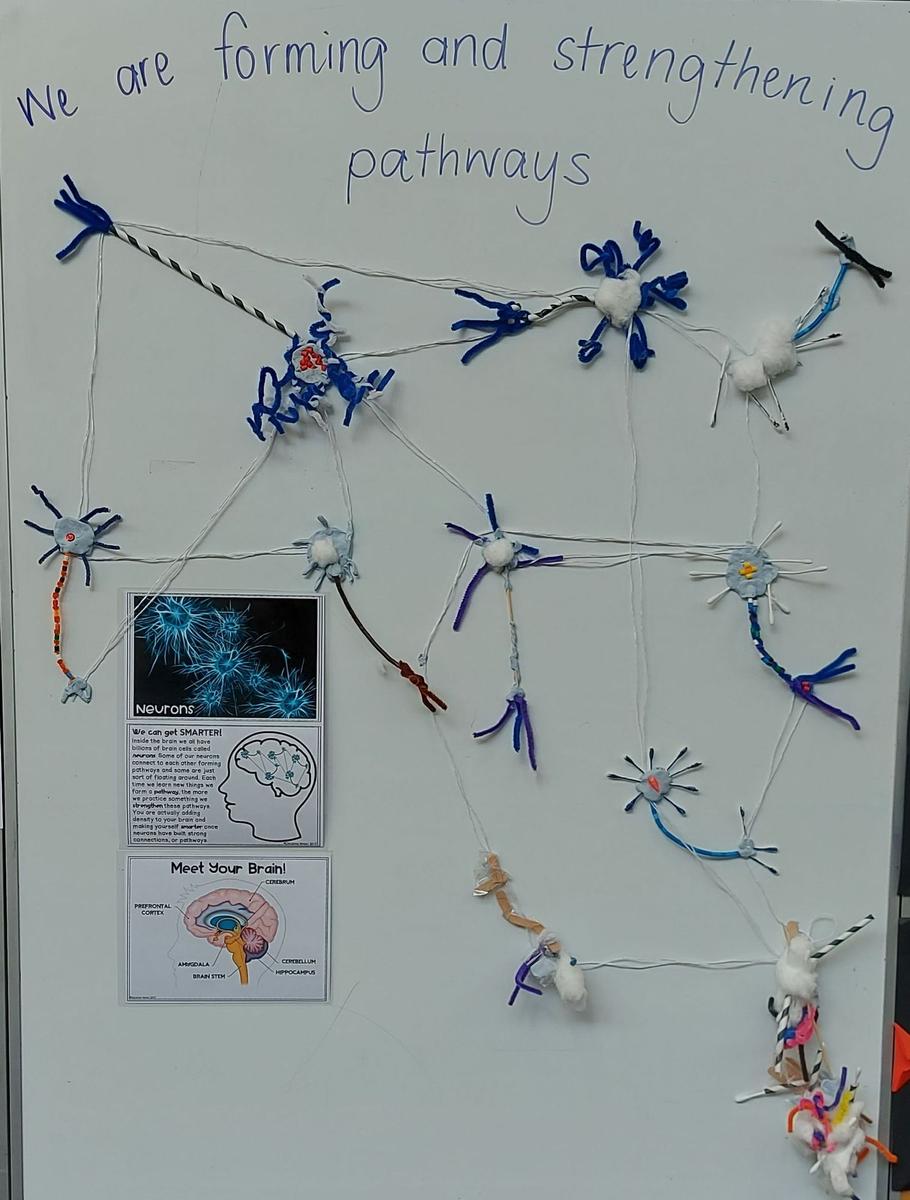Letter to Family and Friends

Dear Pilgrim Families,
In Andrew’s ‘Letter to Family and Friends’ in the last newsletter, he talked about our Positive Learning Communities program which occurs in the classes for the first two weeks of the year. One of the main concepts covered in the Flourish component was the growth mindset. For those new to the ideas of a growth mindset, the following is a summary:
- The brain has many parts that do all kinds of different jobs. These parts are:
- cerebrum - helps us think and speak and is the largest part of the brain
- cerebellum - helps our muscles to coordinate our movements and balance, and is a small part at the back of the brain
- prefrontal cortex - lets us plan and make decisions and is behind our forehead
- hippocampus - stores and helps us find memories and is at the centre of the brain
- amygdala - controls our emotions and is within the centre of our brain
- neurons - are the tiny brain cells that make electrical signals to send messages to other cells in our body telling them what to do.
- The brain grows very fast during the first 10 years of life and by learning new things, our brain is strengthened.
- Learning new things causes the brain to grow more connections among the neurons. These connections help to stretch a part of the brain and make it more ‘elastic’, so it can hold more information and ideas (neuroplasticity).
- Things that are hard at first become easier when we keep on trying.
- Making mistakes is one of the best ways our brains learn and grow.
- We can learn by receiving feedback.
- A growth mindset views intelligence and talent as qualities that can be developed over time.
- A fixed mindset believes individual traits cannot change, no matter how much effort you put in.
Instead of thinking … | Try thinking… |
I’m not good at this. | What am I missing? |
I give up. | I’ll use a different strategy. |
I can’t make this any better. | I can always improve. |
It’s good enough. | Is this really my best work? |
This is too hard. | This may take some time and effort. |
I made a mistake. | Mistakes help me improve. |
I just can’t do this. | I’m going to train my brain. |
As parents and caregivers, we have the opportunity to reinforce these ideas to our children and also remind ourselves!
Studies have shown that having a growth mindset has a number of benefits including having a positive effect on motivation and academic performance, reduced burnout, as well as fewer psychological problems such as depression and anxiety.
Do not conform to the pattern of this world but be transformed by the renewing of your mind. Romans 12: 2
Blessings,
Julie Wicks
Deputy Principal


